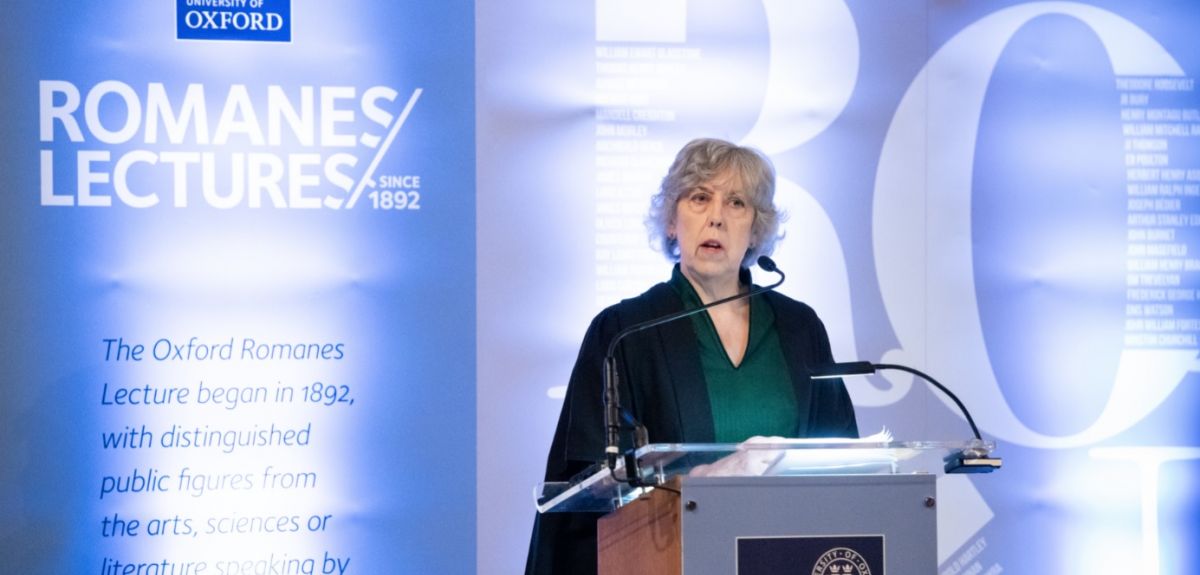
Eliza Manningham-Buller spoke about the profession of intelligence
Photograph by John Cairns
Baroness Manningham-Buller discusses intelligence at Romanes Lecture
Baroness Eliza Manningham-Buller gave the University’s Romanes Lecture yesterday evening (29 October).
Baroness Manningham-Buller, who served as Director General of MI5 from 2002 to 2007 and is now Chair of the Wellcome Trust, spoke in front of a full house at the Sheldonian Theatre.
She discussed the profession of intelligence: the nature of intelligence, its value and limitations, and how it is practised.
She explained the role of intelligence officers, noting that they should be “comfortable with ambiguity” and drawn from “all sections of society” with diverse experiences and backgrounds.
Baroness Manningham-Buller said “ethical issues arise the whole time” for intelligence officers, citing examples of whether to talk to a terrorist or share information with a country with a questionable record on human rights.
She spoke of the importance of legislation underpinning intelligence work, and described intelligence as a “shared endeavour between colleagues” from different departments and countries.
Baroness Manningham-Buller, who is a graduate of Lady Margaret Hall, has been Chair of Wellcome since 2015, having served as a Governor since 2008. Wellcome is a global charity which exists to improve health for everyone by helping great ideas to thrive. She leads a Board of Governors drawn from the worlds of science, business and public life.
Baroness Manningham-Buller, who is a graduate of Lady Margaret Hall, has been Chair of Wellcome since 2015, having served as a Governor since 2008. Wellcome is a global charity which exists to improve health for everyone by helping great ideas to thrive. She leads a Board of Governors drawn from the worlds of science, business and public life.
Previously, Baroness Manningham-Buller had a career with MI5 for more than 30 years, including a posting to the British Embassy in Washington. She served as Director General from 2002 to 2007 and before that was Deputy Director General, with responsibility for operations.
The Romanes Lecture is the annual public lecture of the University. A distinguished public figure from the arts, science or literature is invited by special invitation of the Vice-Chancellor. The lecture was created in 1891, following an offer by George John Romanes of Christ Church to fund an annual lecture, and the first lecture was given in 1892 by William Gladstone.
 New study on Amazonia's fire crises urges action ahead of the next burning season
New study on Amazonia's fire crises urges action ahead of the next burning season
 New heart disease calculator could save lives by identifying high-risk patients missed by current tools
New heart disease calculator could save lives by identifying high-risk patients missed by current tools
 Modern Slavery and Human Rights Policy and Evidence Centre moves to Oxford University after receiving continuation funding
Modern Slavery and Human Rights Policy and Evidence Centre moves to Oxford University after receiving continuation funding
 Study shows that island bats are valuable allies for farmers
Study shows that island bats are valuable allies for farmers
 Study reveals how humanity could unite to address global challenges
Study reveals how humanity could unite to address global challenges